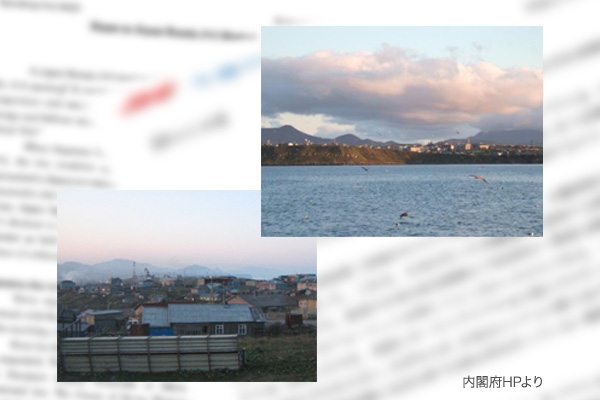A remark by Japanese House of Representatives lawmaker Hodaka Maruyama (expelled from the opposition Japan Innovation Party) has aroused criticism. According to media reports, Maruyama cited a war as a means to recover the Russian-held Northern Territories during his visit to the territories under a “visa-free exchange program.” He has also been reported to have made statements that could lower the dignity of National Diet members.
Restrictions necessary under the visa-free exchange program
The visa-free exchange program is designed for Japanese citizens and Russian residents in the Northern Territories to exchange visits without touching the territorial sovereignty issue to promote the Japanese movement for the return of the territories occupied by Russians since the end of World War II. Only 600 people each from Japan and Russia are allowed to participate in the program annually. Japanese citizens qualified to take part in the program include former residents in the territories and their relatives, activists for the movement, press people and National Diet members.
Participants in the visa-free exchange program are required to refrain from getting involved in the sovereignty issue. If Japanese participants are seized by Russian police for deviant behavior or rely on Russian government agencies due to incidents or accidents, they may be put under Russian sovereignty, making the visa-free exchange program meaningless. In order to claim Japan’s sovereignty over the four Northern Territories islands, Japanese citizens must restrict their behavior during the visit to the territories. They should refrain from going out unnecessarily and avoid excessive drinking that could cause troubles.
Some young National Diet members participating in the program have failed to understand these restrictions. Lawmakers from the ruling parties usually learn from their senior colleagues about the Northern Territories issue before taking part in the visa-free exchange program. However, some of those from opposition parties participate in the program without being fully aware of the issue. When seeing a tour program arranged by the Russians, they may feel that the program is convenient for Russia. Maruyama might have been one of such opposition lawmakers. When seeing a superficially Russianized society and listening to remarks by residents reflecting Russian official view, he might have concluded diplomatic negotiations as failing to realize the return of the territories and mentioned a war for winning the return.
Any war remark runs counter to reconciliation
Participants in the visa-free exchange program include those who think that Russia could return two of the four Northern Territories islands, Habomai and Shikotan, in line with the 1956 Japan-Soviet joint communique because Russian societies on the two islands are underdeveloped. On Shikotan Island, however, some 1,000 Russian border patrol agents are permanently stationed for a security mission for northern waters leading to the Sea of Japan. If Japan hastily tries to have the two islands returned, it may be forced to accept the presence of the Russian border patrol base.
Japan is now required to act very prudently in regard to the Northern Territories issue. In consideration of volatile North Korean situation, Russia from its national security standpoint has become very nervous about control on Northern Territories waters that serve as navigation routes for Russian submarines.
The road to the return of the Northern Territories will still be bumpy. That is why an initiative to unite Japanese and Russian societies through joint economic activities has started in the beginning. The Maruyama remark could anger Russian residents and impede the formulation of private sector cooperation. Many activists for the return of the Northern Territories are concerned that the remark by one lawmaker could be taken as representing Japan’s consensus. Those who participate in the visa-free exchange program toward the return of the Northern Territories must have insight to make cool-headed judgments on the Northern Territories issue and understand what national sovereignty means.
Yoshihiko Yamada is a director of the Japan Institute for National Fundamentals and a professor at Tokai University. He is specialized in maritime issues.


